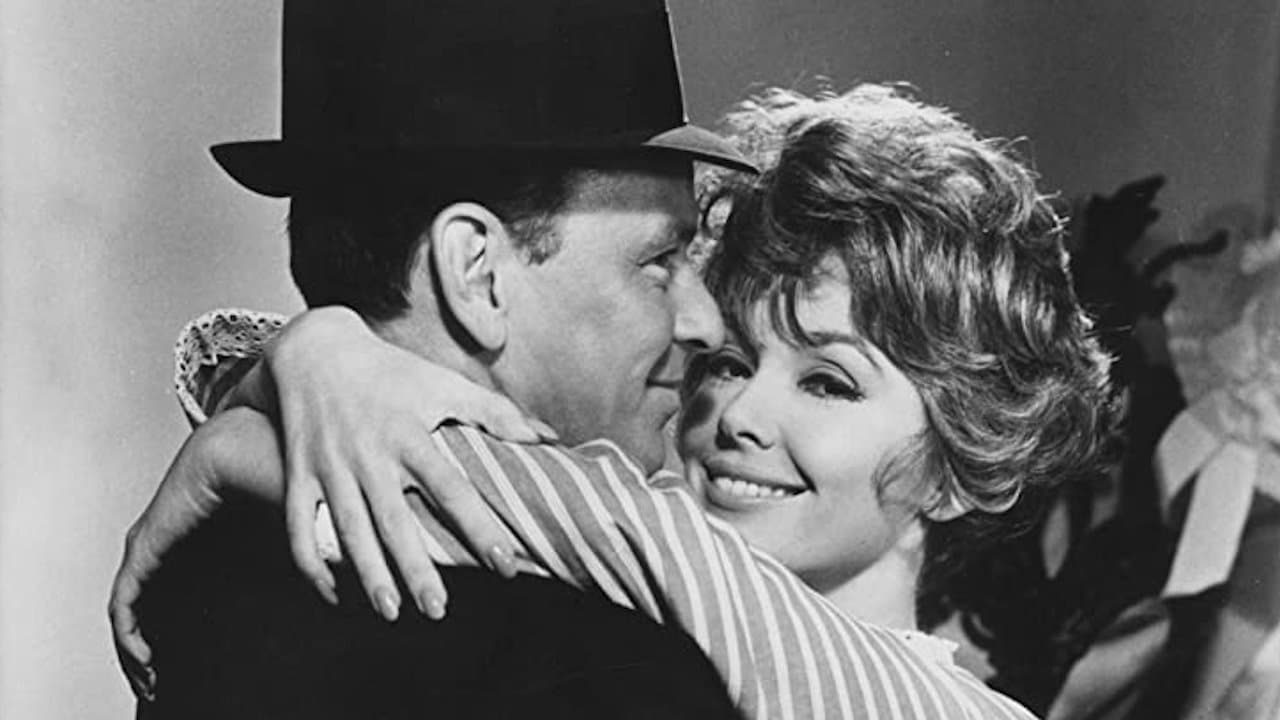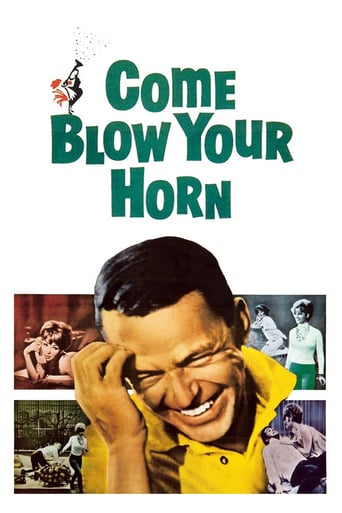

This comment was intended to be with PAL JOEY. Not sure how it got here.whpratt1 obviously has a lot of time on his hands, to quote an old song he probably never heard of (why does he seem to enjoy displaying this fault?). Anyone that considers Pal Joey as a classic film musical has a LOT to learn.The film is not true to the source material and most of the roles are mis-cast. It's curious that, at the time Broadway musicals such as Oklahoma!, Carousel, and The King and I were faithfully and successfully represented (for the most part) on film, the makers of the film version of Pal Joey managed to ruin a perfectly good story and a eliminate most of the show's wonderful score. The casting and performance of Rita Hayworth in the leading female role has probably contributed a great deal to subsequent mis-casting of the role in subsequent stage productions: Patti LuPone and Lena Horne. How whpratt1 can consider this a classic film musical is beyond me.
... View MoreIf you look carefully at "Come Blow Your Horn" you will see it is a two set play that was expanded for this funny movie version. The two sets are the home of Mr. and Mrs. Baker and Buddy in Yonkers, and the apartment used by the older Baker boy Alan as his swinging singles pad. Most of the film is concentrated in those sets, except for scenes involving Alan taking Buddy under his wing to properly groom him, scenes with Barbara Rush outside the apartment (one briefly showing her apartment), and scenes involving Alan and the Eckmans (Dan Blocker and stiletto heeled Phyllis Maguire). Of the scenes outside the apartment, the two best are Alan's meeting with Mr. Eckman, and it's sequel at a restaurant, involving a raw steak and a bum (who turns out to look very familiar). Simon is one of the leading American dramatists of the 20th-21st Century, certainly the most successful comic dramatist. Seeing "Come Blow Your Horn" you see certain themes appearing for the first time. The twisted relationship of the two brothers, who do love each other but find they get on each other's nerves (as Buddy slowly overtakes the older Alan as a hipster). It is similar to the relationship of the brothers in "Brighton Beach Memoirs" and "Broadway Bound" (especially in he second play, where a real argument between the brothers breaks out). The question of relatives with sleazy or questionable activities like Alan's sexual escapades, comparable to the mobster brother in "Lost In Yonkers" or the embezzler, long-lost father in "Max Dugan Returns". The father losing the respect of his sons (found in the ranting Mr. Baker) is similar to the position of the father in "Broadway Bound", who has discovered his sons have reduced him to a comic stereotype in a sketch they sold a radio comedy show. The very fact that the Baker brothers become roommates who get on each other's nerves in an apartment is a constant thread in Simon's plays: "Barefoot In The Park (newliweds); "The Odd Couple" (and it's variation and sequel), "The Sunshine Boys" (in the rehearsal scene and in the conclusion where both Al and Willie seem headed for the old actor's home), even "Plaza Suite" (how three couples act together over the course of one year in a hotel suite). Simon is a master of building humorous tension out of trivialities. In "The Sunshine Boys" just setting up furniture to do a scene both vaudevillians can do in their sleep is frustrating as both see the furniture differently. In "Come Blow Your Horn", when Alan tells off buddy that his swinging lifestyle is going too far, he also mentions that he should keep his hands off Alan's fig newtons!Despite the claustrophobia of the sets limitations "Come Blow Your Horn" is a funny movie, benefiting from the performances of Sinatra, Jill St. John, Lee J. Cobb (usually a master of straight drama, here quite funny), and the glorious Molly Picon. One wishes more of Dan Blocker could have been used, but what was used was quite effective. There is an odd moment in the latter part of the film, connected to a party that Buddy throws, and a hypnotized guest blaming Alan for failing to support an education bill. Alan does an imitation of President Kennedy to reassure the woman. No doubt Sinatra felt it was a good imitation.It was meant to be funny, but now seems macabre.
... View MoreThis was my first Frank Sinatra movie. I have seen clips of his work, and I have enjoyed his singing for years, but this was the first time I really took a good look at his acting.Sinatra plays Alan Baker, a crafty ladies' man who is a disappointment to his overbearing father, who is also his boss (and given Alan's work ethic, that's a good thing). His 21-year-old brother Buddy, who also works for his father and has a 'gee-whiz' quality about him, does everything he can to please his parents, but never manages to satisfy them. One day Buddy decides to move in with his brother. This does not please the father one little bit, and the mother is not happy either. Alan wants his brother to be just like him, so he has the brother 'made over' and, when he has too many girlfriends, lets Buddy pose as a Hollywood producer and take out one of the girls, who wants to be an actress. Alan still has two women to juggle, and unfortunately, one of them is married and a big client of his father's company. And her husband is Dan Blocker (who comes across, unfortunately for Alan but not for us, more as Little Joe than Hoss).Sinatra is good, giving the impression of a much younger man than he would have been when the film was made. He doesn't seem like the Sinatra I knew at first, but later becomes more serious and more like the familiar image. He also gets to sing one song, doing a great job. The actors playing the stereotypically Jewish parents are wonderful (Religion isn't mentioned, but the image of Jewish parents is a familiar one). I haven't seen much of Molly Picon's work, but from seeing this performance and one episode of 'Gomer Pyle, USMC', I can't see anyone portraying the guilt-inducing Jewish mother any better. The actor playing the father made quite an impression as well.This was a good movie, and though slightly off-color, nowhere near as naughty as movies being made today.
... View MoreI have to agree with most of what the previous commenter says; this is a largely disappointing movie. Neil Simon's wit here is not yet up to "Odd Couple" or "Sunshine Boys" speed, and some of the acting is lame. Jill St. John is a tad too cutesily dumb, and Tony Bill's Buddy is somewhat grating, especially after his unconvincing conversion from youthful innocent to roue. However, Sinatra is always worth watching and listening to, especially in the masterful Nelson Riddle's arrangements (here an original song, actually). However, the movie is almost worth watching solely for Lee J. Cobb's performance as papa Baker; his sidesplitting performance as the terminally frustrated Mr. Baker is a study in comic skill, particularly in the scenes where he invades the brothers' apartment. I had never see Cobb do comedy before; now my estimation of him as an actor has increased immeasurably. Catch this one just for Cobb.
... View More